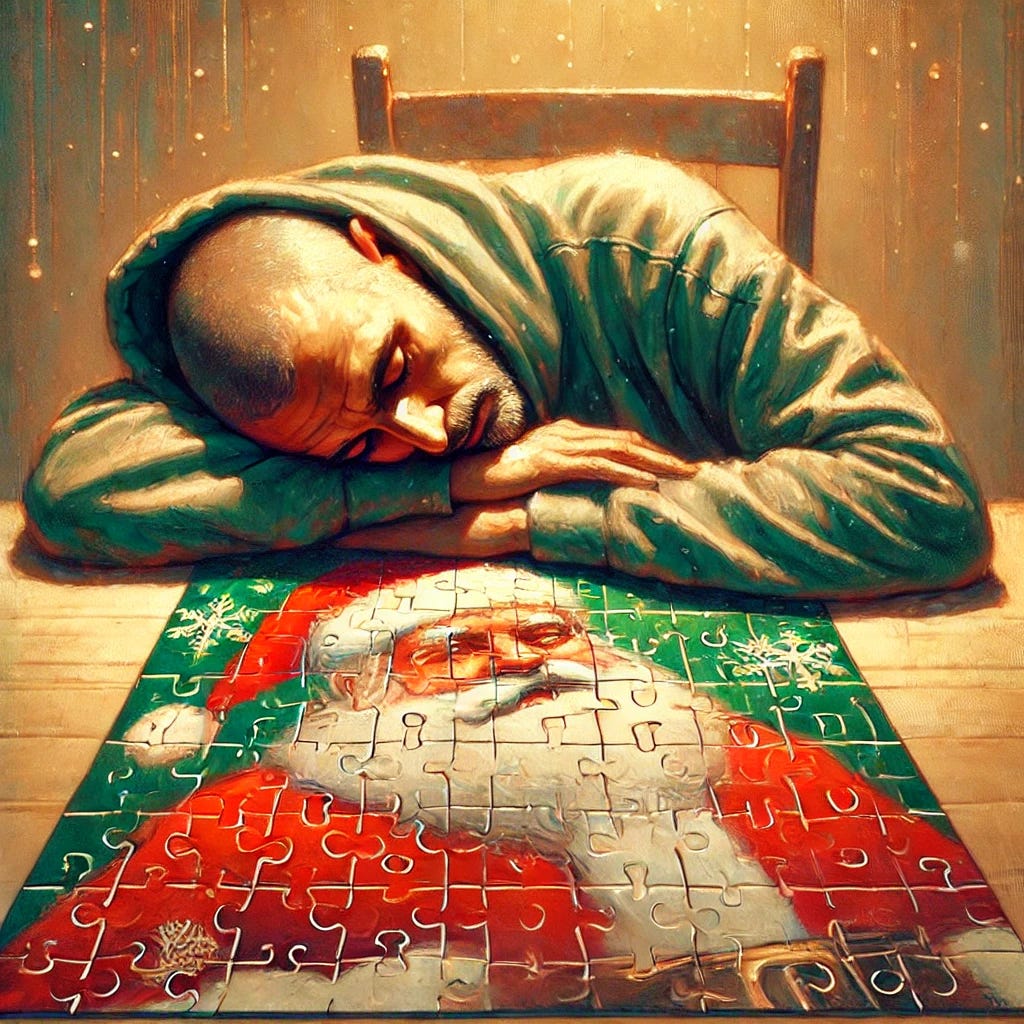Lessons from Christmas Puzzles
My wife's gotten into Christmas puzzles this year. She leaves them half-finished on a table in the family room. As soon as one is finished, she starts the next. So, naturally, I sit down occasionally to hunt for a piece or two—what could possibly go wrong?
Four hours later, I realize it's 2:00 am and I've done nothing else with my evening and I swear I'm coming to bed in one second. Just one more piece to finish the cat... I'm so close. Here kitty kitty... let’s get you home. ARE YOU TOO GOOD FOR YOUR HOME?!
It goes without saying, I've spent a lot of time lately on these heroin-soaked devils and I'm starting to think of everything in terms of Christmas puzzles (the same way too much Tetris makes everything feel like a block I need to find a really good place for).
Here are a few life lessons from my puzzle-frenzied mind. May they serve your puzzle addiction (and maybe your life in general) as well as they have mine.
A Foundation
When I start a puzzle, my mind has to build a foundation first. Subconsciously, it starts cataloging colors and locations. I may not be placing lots of pieces, but that doesn't matter. If I stick with it through the slow phase, pretty soon I start recalling features of the puzzle from memory. Mystically, I'll see a piece and say, Oh, that goes right here. That’s when the momentum picks up.
Progress
I work and I work and it feels like I've hardly made progress at all. Then, out of nowhere, after many hours I can't fully recall, I’m almost done.
To notice my progress, I have to force myself to stop and look around. Sometimes I’m so deep in the puzzle I need my wife to tell me how much progress she’s seen me make (“You’re doing too much; leave some for me!" “You have to stop; you have a problem.” ) to believe I am really getting somewhere.
Fatigue
It may seem obvious, but it’s amazing how often I try to do a puzzle when my brain is too tired. It's best to stop and sleep a bit. What takes hours with a tired brain can be accomplished in minutes with a fresh one.
Companionship
It's useful to have someone else working on the puzzle with me—for many reasons: I tire less quickly, we can team up in various ways, and it's more entertaining overall.
Beginner's Mind
Pieces that seem like they must fit—perfect color and shape—often belong somewhere else entirely. I need to keep a beginner's mind and be open to different interpretations.
Nothing's Perfect
Sometimes a piece falls on the floor, and my dog eats it—oops. But I have to be OK with that. Nothing in life is perfect. Some of our puzzles have missing pieces, but so what? They're still worth doing. Perfectionism be damned.
Let the Puzzle Decide
I often get stuck looking for one piece or finding a place for another. I have to stop forcing the work and let the puzzle unfold how it wants to.



